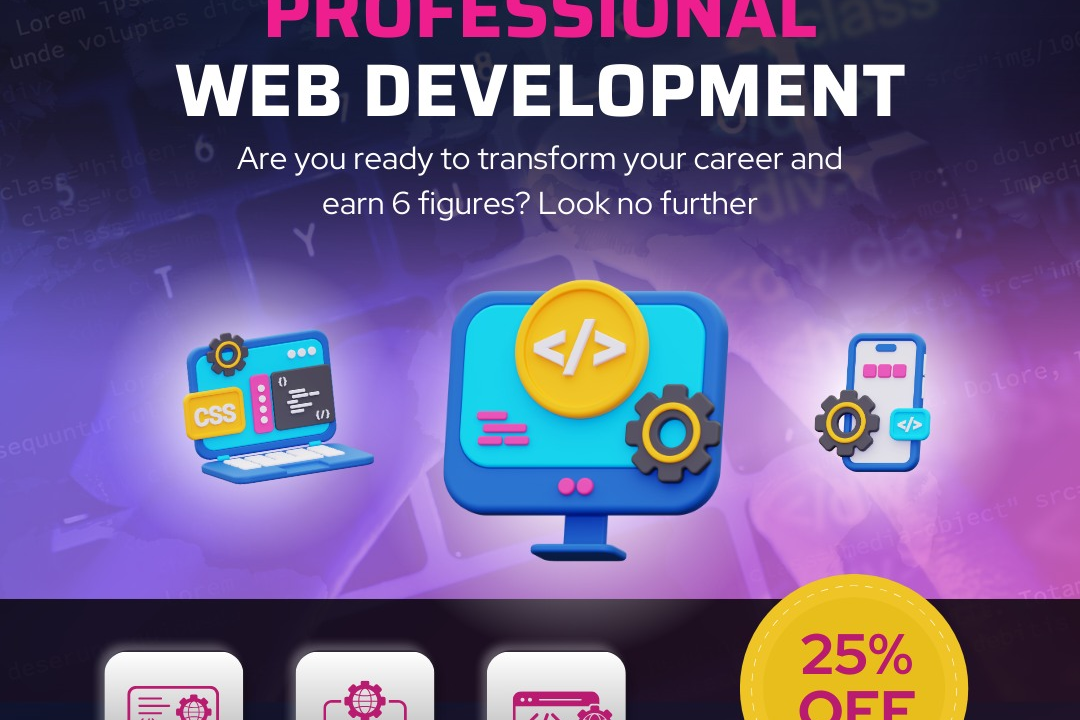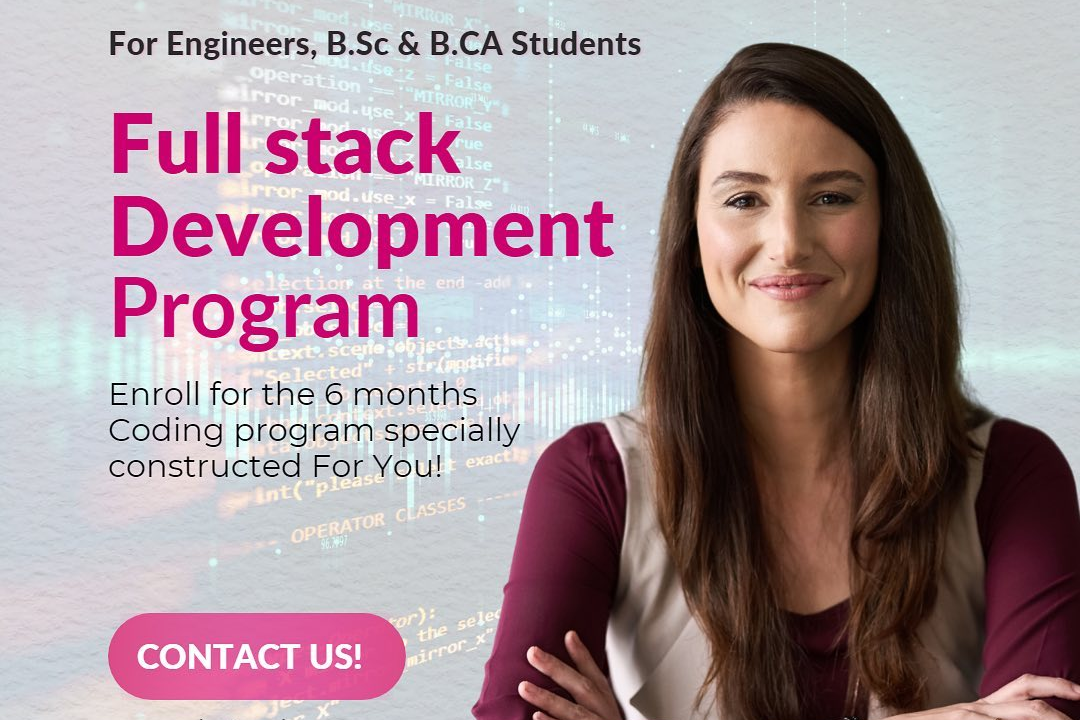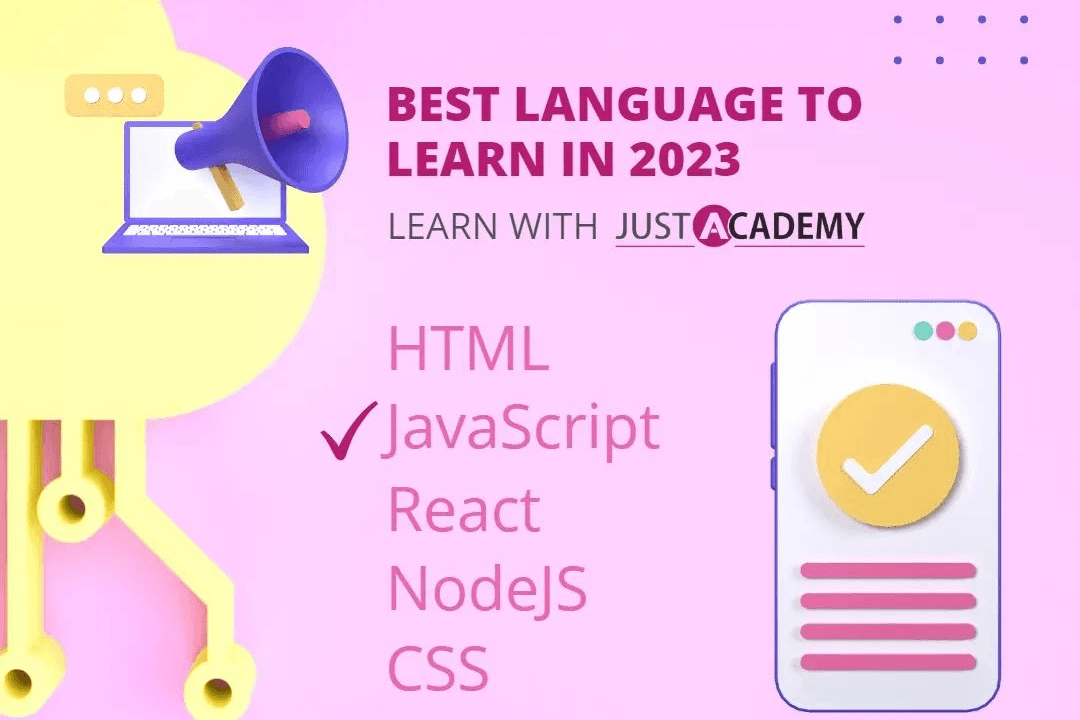React And Node Js Interview Questions
React and Node.js Interview Questions and Preparation Guide
React And Node Js Interview Questions
React, a popular JavaScript library for building user interfaces, allows you to create dynamic, interactive web applications. Node.js, a JavaScript runtime environment, enables you to develop server-side applications and APIs. These technologies are widely used for their ease of use, efficiency, and scalability, making them sought-after by employers. Interview questions on React and Node.js often focus on their key concepts, design principles, and practical implementation. Understanding these technologies demonstrates your ability to build robust and maintainable web solutions.
To Download Our Brochure: https://www.justacademy.co/download-brochure-for-free
Message us for more information: +91 9987184296
1 - Explain the Virtual DOM and its difference from the real DOM.
2) Describe how state management works in React and its benefits.
3) Explain the concept of props in React and how they differ from state.
4) Discuss the advantages of using Node.js for web development.
5) Describe the architecture of a Node.js application.
6) Explain the concept of middleware in Node.js.
7) Describe how to handle asynchronous operations in Node.js.
8) Explain the event loop in Node.js.
9) Discuss the difference between synchronous and asynchronous functions in Node.js.
10) Explain how to handle exceptions in Node.js.
11 - Describe the different ways to deploy a Node.js application.
12) Discuss the advantages of using RESTful APIs in web development.
13) Explain the concept of caching in Node.js.
14) Discuss the importance of testing in React and Node.js applications.
15) Describe some best practices for writing efficient React and Node.js code.
Increase User Engagement:
- Create valuable and shareable content tailored to your target audience.
- * Encourage user interaction with polls, quizzes, contests, and discussion boards.
- * Leverage user generated content to foster a sense of community.
- Optimize Content for SEO:
- * Conduct keyword research and incorporate relevant terms into your content.
- * Create high quality backlinks from reputable sources.
- * Optimize page loading speed and mobile responsiveness.
- Engage with Social Media:
- * Establish a strong social media presence on relevant platforms.
- * Share unique and engaging content to attract followers.
- * Run targeted social media campaigns to reach specific demographics.
- Attract Referrals:
- * Offer incentives for users to refer new members to your website or platform.
- * Create a referral program that rewards both referrers and new users.
- Offer Value Added Services:
- * Provide exclusive content, premium features, or personalized recommendations to premium members.
- * Host webinars, workshops, or online courses related to your niche to attract engaged users.
- Improve User Experience:
- * Design an intuitive and user friendly website or platform.
- * Provide clear navigation and search functionality.
- * Address customer feedback and resolve issues promptly.
- Monitor and Analyze Data:
- * Use analytics tools to track website traffic, user behavior, and conversion rates.
- * Identify areas for improvement and adjust your strategies accordingly.
- Experiment and Innovate:
- * Constantly test new ideas and technologies to improve user engagement and site performance.
- * Explore emerging trends and adapt your content and strategies to meet evolving user preferences.
- Build a Strong Brand:
- * Create a recognizable brand identity and communicate it consistently across all channels.
- * Establish a reputation for providing valuable content and excellent customer service.
- Collaborate with Influencers:
- * Partner with individuals who have a strong following in your niche.
- * Leverage their credibility to reach a wider audience and increase brand awareness.
- Strategies to Increase Points in Games:
- 1. Optimize Gameplay:
- Learn the rules and mechanics:* Mastering the gameplay fundamentals gives you an advantage.
- Practice regularly:* Improve your skills through consistent practice.
- Study player strategies:* Analyze successful players' techniques and incorporate them into your gameplay.
- 2. Enhance Character/Equipment:
- Upgrade characters and equipment:* Improve their abilities and stats for better performance.
- Acquire rare items:* Rare items often provide significant bonuses and advantages.
- Optimize character builds:* Choose the best combination of abilities and equipment that synergize well.
- 3. Participate in Events and Challenges:
- Join tournaments and competitions:* Compete against other players for exclusive rewards and points.
- Complete in game quests:* Quests often offer valuable items, experience, and points.
- Participate in daily and weekly challenges:* These challenges usually award points for specific achievements.
- 4. Strategic Partnerships:
- Join a guild or clan:* Collaborate with other players for support, resources, and increased efficiency.
- Form alliances:* Team up with other individuals or groups to combine strengths and increase your chances of success.
- Network with other players:* Make connections and exchange tips and strategies.
- 5. Take Advantage of Bonuses and Multipliers:
- Use power ups:* Temporary enhancements can boost your points in key moments.
- Activate multipliers:* Collect items or activate abilities that multiply your points earned.
- Take advantage of time limited events:* Special events often offer increased point rewards.
- 6. Optimize Resource Management:
- Use resources wisely:* Allocate your resources (e.g., gold, gems, time) efficiently to maximize returns.
- Invest in high yield strategies:* Prioritize investing in strategies that generate the most points for the least effort.
- Avoid unnecessary expenses:* Don't waste resources on items or activities that don't provide a significant benefit.
- 7. Utilize Automation and Tools:
- Use automation:* Utilize bots or scripts to automate tasks and save time.
- Leverage online tools:* Utilize websites and apps that provide helpful resources, strategies, and calculators.
- Seek external assistance:* Consider hiring a professional gamer or coach for guidance and optimization.
- 8. Maintain Motivation and Persistence:
- Set realistic goals:* Avoid overwhelming yourself with unachievable goals.
- Track your progress:* Monitor your performance and adjust strategies as needed.
- Stay motivated:* Find ways to keep yourself engaged and motivated throughout the grind.
- Course Overview
- This comprehensive course provides candidates with essential preparation for React and Node.js job interviews. It covers fundamental concepts, advanced techniques, and commonly asked interview questions in both frameworks. Participants will gain a deep understanding of these technologies, enhancing their ability to demonstrate their skills and make a strong impression during interviews.
- Course Description
- Ace your next React and Node.js interview with this comprehensive course covering core concepts, best practices, and commonly asked interview questions. Enhance your knowledge of React's component lifecycle, props, state management, and Node.js's asynchronous programming, file handling, and server-side rendering. Master the art of answering technical questions with confidence and showcase your expertise in these popular JavaScript technologies.
- Key Features
- 1 - Comprehensive Tool Coverage: Provides hands-on training with a range of industry-standard testing tools, including Selenium, JIRA, LoadRunner, and TestRail.
- 2) Practical Exercises: Features real-world exercises and case studies to apply tools in various testing scenarios.
- 3) Interactive Learning: Includes interactive sessions with industry experts for personalized feedback and guidance.
- 4) Detailed Tutorials: Offers extensive tutorials and documentation on tool functionalities and best practices.
- 5) Advanced Techniques: Covers both fundamental and advanced techniques for using testing tools effectively.
- 6) Data Visualization: Integrates tools for visualizing test metrics and results, enhancing data interpretation and decision-making.
- 7) Tool Integration: Teaches how to integrate testing tools into the software development lifecycle for streamlined workflows.
- 8) Project-Based Learning: Focuses on project-based learning to build practical skills and create a portfolio of completed tasks.
- 9) Career Support: Provides resources and support for applying learned skills to real-world job scenarios, including resume building and interview preparation.
- 10) Up-to-Date Content: Ensures that course materials reflect the latest industry standards and tool updates.
Benefits of taking our course
Functional Tools
Tools Used in ‘React and Node.js Interview Questions’ Course
- React and Node.js: Students learn the fundamentals of React and Node.js, including component based development, state management, server side rendering, and database connectivity.
- 2. JavaScript and ES6: The course covers advanced JavaScript concepts, including ES6 syntax, modules, async/await, and object destructuring, to enhance the understanding of React and Node.js development.
- 3. Redux and Context API: Students explore Redux, a state management library, and Context API, a built in React feature, to manage application state effectively and efficiently.
- 4. GraphQL: The course introduces GraphQL, a query language for APIs, which improves data fetching and querying performance in React applications.
- 5. Jest and Enzyme: Students learn to use Jest for unit testing React components and Enzyme for snapshot testing, ensuring code reliability and maintainability.
- 6. SQL and MongoDB: The course provides an overview of relational (SQL) and NoSQL (MongoDB) databases, enabling students to understand data persistence in React and Node.js applications.
- Answer questions accurately and thoroughly. The more accurate and complete your answers are, the more likely you are to receive upvotes.
- Be helpful and informative.* Provide helpful information and insights that will benefit other users.
- Be respectful of others.* Avoid being rude or dismissive, even if you disagree with someone.
- Use formatting to make your answers easy to read.* Use headings, lists, and paragraphs to break up your text and make it more readable.
- Add images and videos to your answers.* Visuals can help to make your answers more engaging and informative.
- Participate in the community.* Upvote and comment on other questions and answers. This shows that you are engaged in the community and helps to build relationships with other users.
- Be patient.* It takes time to build a reputation and get more points. Don't get discouraged if you don't see results immediately. Just keep answering questions and being helpful, and eventually you will start to see more upvotes.
Browse our course links : https://www.justacademy.co/all-courses
To Join our FREE DEMO Session:
This information is sourced from JustAcademy
Contact Info:
Roshan Chaturvedi
Message us on Whatsapp:
Email id: info@justacademy.co
React Js Vs React Native Interview Questions
Flutter Widgets Interview Questions












